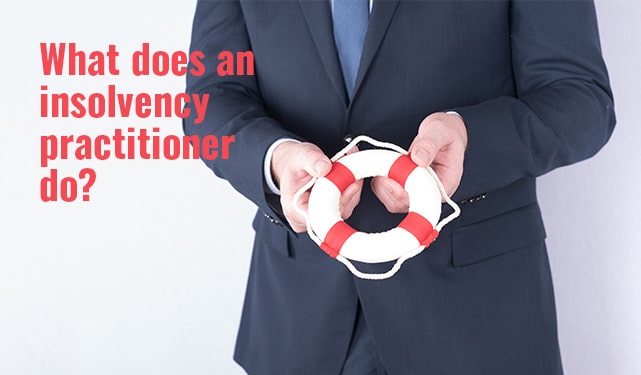Insolvency Practitioner Things To Know Before You Buy
Table of ContentsThe Greatest Guide To Insolvency PractitionerIndicators on Insolvency Practitioner You Need To KnowInsolvency Practitioner Fundamentals ExplainedInsolvency Practitioner - TruthsFacts About Insolvency Practitioner Uncovered
Whether or not you need to utilize an insolvency practitioner (IP) to liquidate your company depends upon different aspects. While involving a bankruptcy expert for all types of liquidation is not a lawful demand, doing so can commonly improve the process and ensure compliance with legal demands. Liquidating a firm is an important choice that includes significant effects.
It is a procedure used when a company does not have any kind of lenders, or every one of their lenders can be repaid in full with statutory interest. Recognizing the various kinds of insolvency procedures can assist you establish the very best strategy for your business's liquidation or other official bankruptcy procedures itself.
This is necessary in order to comply with lawful needs - Insolvency Practitioner. This is because IPs have the needed credentials and experience to make sure that the liquidation procedure is carried out based on all suitable laws and guidelines. By involving an accredited bankruptcy specialist, you can have peace of mind knowing that your business's liquidation procedure will certainly be handled skillfully and in conformity with the appropriate legal requirements
All About Insolvency Practitioner
The insolvency specialist is assigned as a liquidator and is in charge of managing the business and liquidator's debts exceptional responsibilities and assets. This procedure involves selling the firm's assets and distributing the earnings to creditors. Upon conclusion of the process, the business is gotten rid of from the register at Firms House.
Failing to do so can result in personal responsibility for the firm or director for the financial institution's financial debts. Voluntary liquidation, which includes Financial institutions' Voluntary Liquidation (CVL) and Participants' Voluntary Liquidation (MVL), is launched by the company's supervisors and shareholders when they can no more pay their financial obligations. In a CVL, the insolvency practitioner is marked as the liquidator, liable for handling business debts and all firm possessions.

The 4-Minute Rule for Insolvency Practitioner
By analyzing the know-how and experience of possible insolvency professionals, you can make certain that you choose an expert that possesses the necessary certifications to manage your business's liquidation process successfully. While insolvency practitioner-led liquidation is frequently the most appropriate course of activity for business encountering insolvency, there are different methods to take into consideration, such as striking off and partial liquidation.
It's important to assess all available options before picking the following ideal solution or strategy for your organization. Striking off firms' registers is a much more simple and economical method to close dormant or tiny firms without debts or assets. To strike off a business, its name is removed from the Companies House register by sending type DS01.
Before going with striking off, it's essential to weigh the benefits and downsides of this technique and take into consideration whether it's the appropriate choice for your service. Partial liquidation is an additional alternative to insolvency practitioner-led liquidation, wherein a business sells see here now off particular possessions and obligations while remaining to run with the staying assets and obligations.
An Insolvency Expert will certainly be able to encourage you of the most effective strategy to take and make sure that look at more info whatever runs smoothly. It is not feasible to sell off a company without a liquidator. Assigning an authorised bankruptcy specialist is needed for the process of volunteer liquidation to begin.
A Biased View of Insolvency Practitioner
It is feasible to shut and liquidate your company without making use of a liquidator, provided your firm is solvent and you fulfill the qualification needs to dissolve or liquidate it. Nevertheless, if your company is insolvent, you might be needed to make use of a liquidator and begin official insolvency procedures. Right here are a few other informative short articles relating to firm liquidation in the UK:.
Being in a position where you're unable to pay your business's lenders is very difficult. In an attempt to prevent boosting the level of debt, many companies attempt to bargain straight with their financial institutions and agree to a casual plan. If the financial obligation is rather small and owed to one creditor, and the creditor is being participating, becoming part of an informal financial obligation plan is most likely the finest solution, instead of looking the web for 'an insolvency specialist near me'.
On the other hand, if there are numerous lenders and the level of financial debt is big, financial institutions might not be so ready or cooperative. To avoid liquidation or personal bankruptcy, it is far better to employ here are the findings an insolvency practitioner to prepare formal proposals and bargain with financial institutions in your place.
More About Insolvency Practitioner
Whilst it is a means to handle debt, there are substantial dangers involved with this kind of debt setup - Insolvency Practitioner. If a lender is willing to become part of a casual arrangement (IA) wherein the debtor has actually concurred to make normal, if lower, repayments to pay back the debt, it's important to stay with the arrangement

The lender is within their civil liberties to back out of the agreement and petition the courts for your business to be liquidated at any type of time. An official setup that has been proposed by an insolvency professional in your place, and agreed by a lender, supplies a much safer alternative.